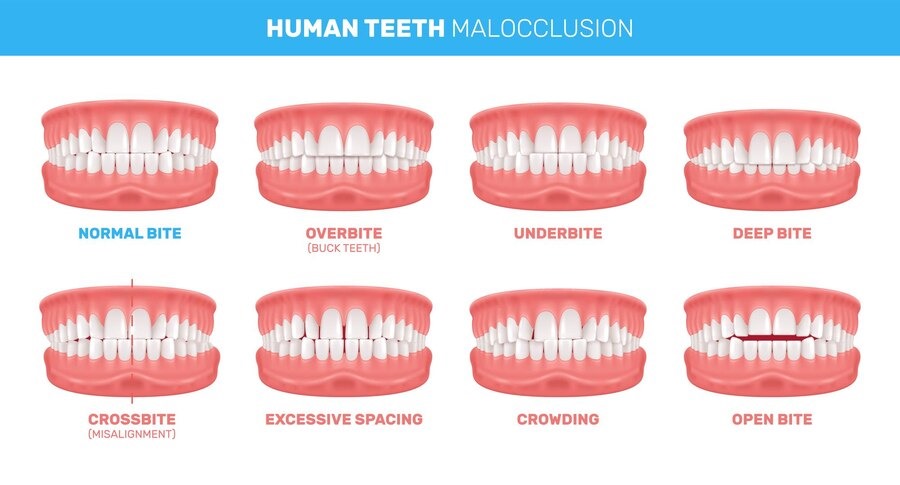What is a Crossbite?

A crossbite is a common dental condition characterized by the misalignment of the upper and lower teeth when the jaws are closed. In a normal bite, the upper teeth slightly overlap the lower teeth. However, in a crossbite, one or more of the upper teeth fall inside the lower teeth. This condition can affect either the front teeth, known as an anterior crossbite, or the back teeth, known as a posterior crossbite. Crossbites can occur due to various reasons including genetic factors, delayed loss of primary teeth, abnormal tooth eruption, or habits like thumb sucking.
Signs of Crossbite
Identifying a crossbite early is crucial for effective treatment and to prevent further complications.
Here are some common signs that indicate the presence of a crossbite:
- Misaligned Bite
- Uneven Wear on Teeth
- Difficulty in Chewing or Biting
- Jaw Pain or Discomfort
- Speech Difficulties
Treatment Options for Crossbite
Braces
Braces are a widely used and effective treatment for crossbite. They consist of brackets and wires that gradually move the teeth into the correct position over time. Both traditional metal braces and clear aligners, such as Invisalign (invisible braces), can be used to treat crossbite. Braces work by applying consistent pressure to the teeth, encouraging them to shift into the proper alignment.
Palatal Expanders
Palatal expanders are particularly useful for treating crossbites in children whose palates are still growing. This device is attached to the upper teeth and gradually widens the upper jaw by applying gentle pressure. Over time, this creates more space in the mouth and corrects the crossbite. Palatal expanders are typically used before or along with braces.
Removable Appliances
For mild cases of crossbite, removable orthodontic appliances, such as clear aligners or retainers with springs or screws, can be used. These appliances are custom-made to fit the patient’s mouth and can be taken out for eating and cleaning. They work by gradually moving the teeth into the correct position over time.
Jaw Surgery
In severe cases where the crossbite is due to skeletal issues rather than just misaligned teeth, orthognathic (jaw) surgery may be necessary. This type of surgery involves repositioning the jawbones to achieve proper alignment. Jaw surgery is usually combined with braces to align the teeth properly after the jaw has been corrected. This treatment is typically recommended for adults with significant skeletal discrepancies.
Dental Bonding or Crowns
For adults with minor crossbites, dental bonding or crowns can sometimes be used to adjust the biting surface of the teeth. Dental bonding involves applying a tooth-colored resin to the affected teeth to reshape them and improve their alignment. Crowns, which are caps that cover the entire tooth, can also be used to correct the alignment. However, these are more cosmetic solutions and may not address the underlying issue of misalignment.
If you are facing crossbite issues, then you can schedule an appointment and call at 9938942846 at Sarangi Dentistry for timely treatment and expert care by our Orthodontist.

